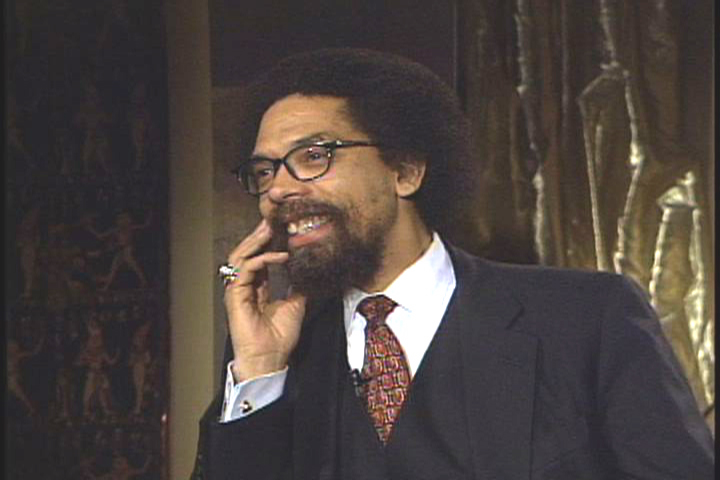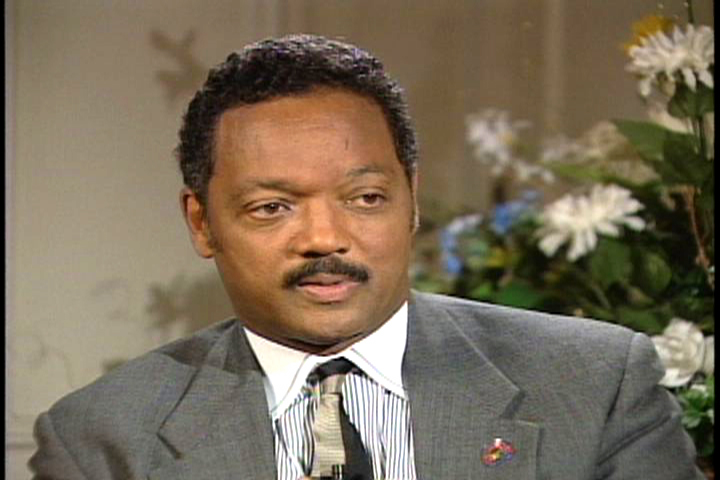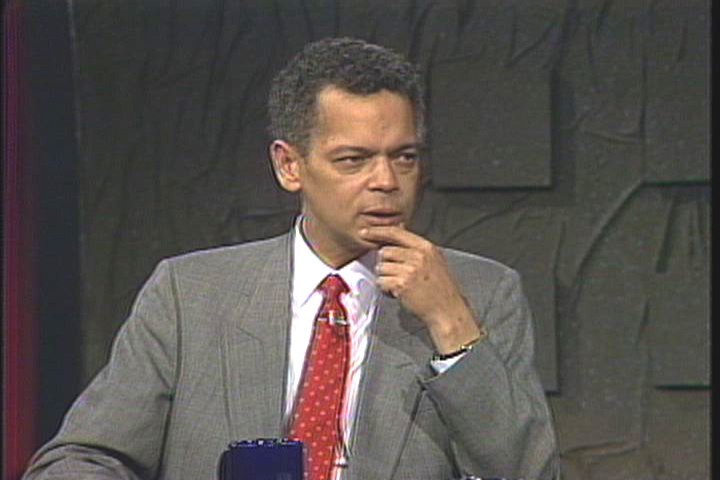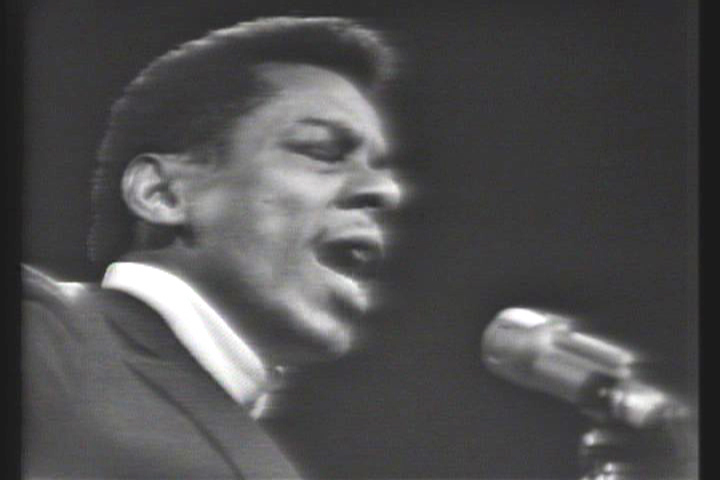Educational resources for:
Poverty, Progress, and the Rise of African-American Businesses and Professionals
Overview
The segmentation of the African-Americans into a new middle class and an existing underclass was a major theme in American economy and society during the last quarter of the 20th century. ABJ interviews with black leaders and reformers highlight the ways that the restructuring of the rustbelt economy perpetuated some barriers to achievement as it opened new opportunities to the increasing number of skilled African-Americans.
Featured Show Clips & Comprehension Questions
Questions:
What is the main idea of the segment?
What does this skit suggest about the place of African Americans in the business world?
See Full Video

"Free Your Mind" Public Service Announcement ("Two Selves")

Berry Gordy describes persisting in the pursuit of his dream

Berry Gordy discusses how he got Motown started with financial support from his family

Berry Gordy explains why he decided to write his autobiography

Coleman Young describes the city's economic and educational needs and the role of industry

Coleman Young discusses the prospects of a black person being elected president

Coleman Young's thoughts on a crackdown on crime in the city of Detroit

Cornel West discusses the impact of economic trends on American culture

Cornel West on love and hope

Cornel West on the importance of leadership

Earl Graves and Dave Bing describe blacks getting into more diversified businesses and the role of federal support for minority businesses

Earl Graves and Dave Bing discuss the factors affecting the economic influence of African Americans

Earl Graves responds to a caller's question about black consumers supporting black businesses

Erma Henderson describes her mayoral campaign

Erma Henderson discusses her relationship with and challenge to Mayor Coleman Young

Erma Henderson's early activism and her acquaintanceship with W.E.B. DuBois and Paul Robeson

Interview with Martha Jean (the Queen) Steinberg about the "forgotten people" of the working class

James Brown discusses his philosophy of life and his desire to look beyond race to just people

James Brown talks about his lack of formal education and the need for artistic control over the work he does

Jesse Jackson describes the way injustice is expressed in public policy

Jesse Jackson discusses the potential for an African American to be elected president and the relationship between mass mobilization and changes in public policy

Jesse Jackson on the importance of coalition building

Julian Bond on black apathy and the need for African Americans to maximize their political potential

Mel Farr and Charles Harrell, auto dealership owners, respond to a caller's question about the importance of dealer location and customers' credit

Nathan Conyers discusses the number of black-owned automobile dealerships

Panelists discuss reluctance of black consumers to buy cars from black dealers
Thematic Questions
What qualities do you see in such people as Berry Gordy, Dave Bing, Erma Henderson and Coleman Young that you think might have contributed to their success?
What kind of barriers to success for African Americans do such people as Cornel West, Earl Graves, Jesse Jackson and others identify, and how do those barriers limit the advancement of African Americans?
What similarities and differences do you see in the strategies such people as Jesse Jackson, Cornel West, Julian Bond and Earl Graves propose for overcoming the barriers that face African Americans?
Websites
Narratives of African American Art and Identity - The David C. Driskell Collection
http://www.driskellcenter.umd.edu/collection/index.php
An exhibition hosted by the Art Gallery of the University of Maryland. The exhibit showcases the work of various artists from the collection of artist and scholar David C. Driskell. The pieces by these artists "vividly document changes in African American identity and belief from the 1870s through the 1990s."
PBS's Generation Next: Speak Up and Be Heart - "MTV's Racist Programming Contradicts Its Theme of Tolerance"
http://web.archive.org/web/20120603144407/http://www.pbs.org/newshour/generation-next/blog/mtvs_racist_programming_contra_11-28.html
An op-ed piece written by a young woman on the representations of African Americans in the media. This editorial is a critique of MTV programming. The article is on the companion site to the series Generation Next which documents the voices of young people on various topics, including racism, politics, and the media.
Time Magazine - "America's Rising Black Middle Class"
http://www.time.com/time/magazine/article/0,9171,879319,00.html?promoid=googlep
A June 17, 1974 feature article on the subject of the state and growth of America's African-American middle class. This article can be seen as a bridge between the 1969 ABJ episodes and the 1980s and 1990s episodes. Interesting and at times shocking to the contemporary reader in its content, this article provides context for the missing commentary of the state of the black middle class in the 1970s.
Black Enterprise
http://www.blackenterprise.com/
Since 1970 Black Enterprise has been a source of financial and business information dedicated to an African-American readership. A multimedia company, Black Enterprise also develops programs to assist African Americans "become financially empowered."
The Bing Group
http://www.fundinguniverse.com/company-histories/The-Bing-Group-Company-History.html
Official site of the "certified Detroit-based minority business enterprise dedicated to uplifting our community." African-American activist Dave Bing founded the metals processing and products manufacturing company in 1980.
Related Films
Two Dollars And A Dream.
VHS/DVD. 56 minutes.
Directed by Stanley Nelson. New York: Filmmakers Library, 1988.
A biopic of Madame C.J. Walker, an African-American business woman who built her fortune developing beauty products for African-American women. This story also gives a portrait of the African-American from 1867 through the 1930s.
The Black Press: Soldiers Without Words.
VHS/DVD. 86 minutes.
Produced by Stanley Nelson. San Francisco: California Newsreel, 1998.
A history of the black press and its role in the creation of "modern African American identity." For teacher resources and other related materials, see the companion site: http://www.pbs.org/blackpress/
Black Is … Black Ain't.
VHS/DVD. 87 minutes.
Directed by Marlon Riggs. California Newsreel, 1995.
Explores the debates over Black identity, from stereotypes created by White American to definitions of "Blackness" created by African Americans. Filmmakers also tackle various issues in the black community including colorism, homophobia, patriarchy and sexism.
Books
Bell, Gregory S. In The Black: A History of African Americans on Wall Street. New York: Wiley, 2002.
A history of African Americans' experience on Wall Street, with emphasis on the past forty years. Discusses the barriers minority professionals had to overcome to be successful in finance.
Coner-Edwards, Alice and Jeanne Spurlock, eds. Black Families in Crisis: The Middle Class. New York: Brunner/Mazel, 1988.
A collection of essays by educators, psychiatrists, psychologists and social workers on the problems facing African-Americans of the middle-class. The authors explore how many individuals internalize various forms of oppression that consequently become stressors affecting their lives.
Rooks, Noliwe M. Hair Raising: Beauty, Culture and African American Women. New Brunswick, N.J.: Rutgers University Press, 1996.
The author explores the social and political meanings of hair in African American women's culture. She examines advertisements and women's magazines to understand the "construction of an African American female identity and various positions surrounding the meaning of African American women's bodies in a broad social context."
Shelley, Green. Black Entrepreneurship in America. New Brunswick, N.J.: Transaction Publishers, 1996, c. 1990.
An examination of the black social, economic and cultural experience and how it affects black entrepreneurship. Argues that black entrepreneurship is necessary to improve social and economic conditions in the black community.
Newkirk, Pamela. Within the Veil: Black Journalists, White Media. New York: New York University Press, 2000.
An investigation into how race continues to affect the media, coverage of African-Americans, and the role of African-American journalists.
Additional Show Clips & Comprehension Questions
Questions:
What are some of the problems the students at Northeastern High School identify about their school and the education they are receiving?
Why does host and narrator Tony Brown think it is important for viewers to pay attention to the concerns raised by the students?
See Full Video

Making of a Rioter

Kenny Cockrel retrospective

Mike Hamlin discusses Ken Cockrel's labor activism

Nathan Conyers discusses the number of black-owned automobile dealerships

Mel Farr and Charles Harrell, auto dealership owners, respond to a caller's question about the importance of dealer location and customers' credit

Panelists discuss reluctance of black consumers to buy cars from black dealers

James Brown talks about his lack of formal education and the need for artistic control over the work he does

James Brown discusses his philosophy of life and his desire to look beyond race to just people

James Brown discusses his commitment to his audience





